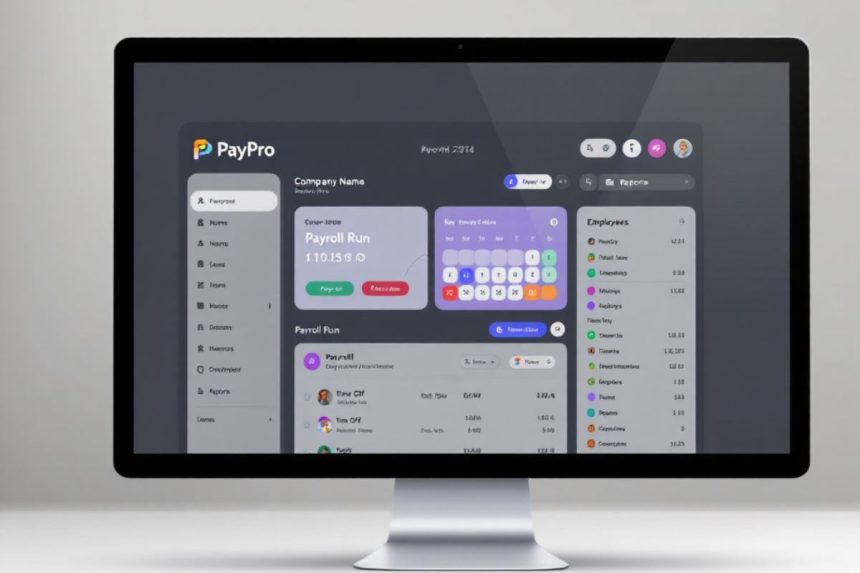Key Takeaways:
Payroll software ensures tax compliance and avoids penalties by automating complex calculations, keeping up with regulatory changes, and simplifying documentation processes. These systems enhance accuracy, support timely submissions, and reduce administrative burdens, enabling businesses to focus on growth and efficiency.
Introduction
Businesses must maintain tax compliance in today’s intricate and rapidly evolving regulatory environment. Navigating the complexities of tax regulations can be challenging, with substantial consequences for non-compliance, including penalties and audits. A solution to these challenges lies in implementing payroll software designed to manage all aspects of employee compensation while ensuring adherence to tax obligations.
Payroll software enhances the efficiency of payroll management systems by streamlining the entire tax compliance process. By automating tax calculations, updating regulatory requirements, and generating essential documentation, these systems ensure that businesses comply with current tax laws and avoid costly penalties. The software serves as a comprehensive tool for companies aspiring to maintain tax compliance and mitigate risks associated with human error.
Automation of Complex Tax Calculations
One of the primary benefits of using payroll software is its ability to automate complex tax calculations, reducing the risk of manual errors arising from intricate tax computations. Taxes, such as income tax, Social Security, and Medicare, require precise calculations based on varying regulatory guidelines and thresholds. By leveraging payroll software, businesses can automate these calculations, ensuring accuracy in deductions and contributions for each pay period.
Incorporating payroll software into business operations allows companies to effortlessly handle additional tax obligations, such as retirement contributions and health benefits. The software accurately computes required deductions, ensuring that paychecks precisely reflect tax withholdings, providing peace of mind that compliance is being maintained. Automating these processes significantly reduces administrative costs and the risk of penalties arising from calculation errors.
Staying Up-to-Date with Regulatory Changes
Tax laws and regulations are subject to frequent changes, driven by legislative amendments and policy shifts. Businesses must stay informed of these changes to ensure continued compliance. Payroll software supports this need by providing automatic updates that integrate new tax rules and guidelines into payroll calculations. This proactive approach helps businesses adapt to regulatory changes without manual interventions or extensive training on new tax requirements.
The dynamic capability of payroll software ensures that businesses can respond efficiently to regulatory updates, maintaining compliance across payroll operations. This adaptability conserves valuable time and resources and shields businesses from potential compliance lapses that might lead to penalties. Utilizing payroll software eliminates the need for constant monitoring of tax regulations, allowing companies to focus on their core activities.
Enhancing Accuracy in Payroll Processing
Maintaining accuracy is paramount in all payroll operations, especially regarding tax compliance. Payroll software dramatically enhances the precision of payroll processing by minimizing human errors that can occur with manual data entry and calculations. These systems employ sophisticated algorithms and validation checks to ensure accurate payroll outputs every time, significantly reducing the chance of discrepancies and ensuring compliance.
The software also facilitates the reconciliation of payroll information, presenting a clear and organized report of all payroll activities. This transparency and accuracy in payroll processing enable businesses to maintain reliable financial records that reflect all tax obligations. As a result, companies are better prepared for audits and inspections, as accurate and comprehensive payroll data is readily available.
Simplifying Documentation and Record-Keeping
Comprehensive and accurate documentation is essential for both tax compliance and business continuity. Payroll software simplifies maintaining payroll records by systematically organizing and storing all necessary documentation. This capability ensures that all documents are readily available and easily accessible for audits, internal reviews, and tax filings.
The software supports businesses in generating required documentation, such as pay stubs, tax forms, and year-end reports, in compliance with legal requirements. By automating these documentation processes, businesses can reduce the time and resources allocated to paperwork, thus lowering overhead costs. Moreover, organized record-keeping contributes to eliminating errors and enhances the ability to respond swiftly to compliance inquiries.
Timely Tax Filings and Payments
Timeliness in tax filings and payments is vital to avoiding penalties and maintaining good standing with tax authorities. Payroll software facilitates the creation and submission of tax filings well before deadlines, ensuring that all required documents are correctly prepared and submitted on time. By automating filing schedules, businesses can rest assured that tax obligations are met promptly and by regulatory requirements.
The software also assists in managing tax payments and scheduling payments to be made manually or automatically. This ensures that businesses comply with payment schedules and avoid late fees, interest charges, or penalties. Through timely filings and payments, companies can maintain a reputation for reliability and compliance, strengthening their relationship with tax authorities.
Support for Multi-State and International Compliance
Managing diverse tax regulations can be particularly challenging for businesses operating in multiple states or globally. Payroll software extensively supports multi-state and international compliance by integrating diverse tax codes and labor laws across jurisdictions. This capability ensures that businesses adhere to all regional tax requirements, avoiding discrepancies and penalties that could result from non-compliance.
The software is designed to manage the complexities of different tax systems, automatically adjusting to the specific requirements of each jurisdiction. This adaptability simplifies the management of tax responsibilities across various locations, reducing the administrative burden on businesses. By ensuring compliance across all areas of operation, payroll software enables firms to expand geographically without compromising compliance standards.
Conclusion
In conclusion, payroll software is an indispensable asset for businesses striving for tax compliance and avoiding penalties in today’s complex regulatory landscape. Through automation, timely updates on regulatory changes, enhanced accuracy, and streamlined documentation, payroll software addresses the myriad challenges businesses face in maintaining compliance. Its role in facilitating accurate calculations, timely submissions, and comprehensive record-keeping makes it an invaluable tool for businesses of all sizes.
By integrating payroll software into their operations, businesses ensure compliance and achieve greater operational efficiency, allowing them to concentrate on core business growth and development. As tax regulations evolve, payroll software provides businesses the flexibility and resilience to navigate these changes confidently, safeguarding their financial well-being and reputation.

